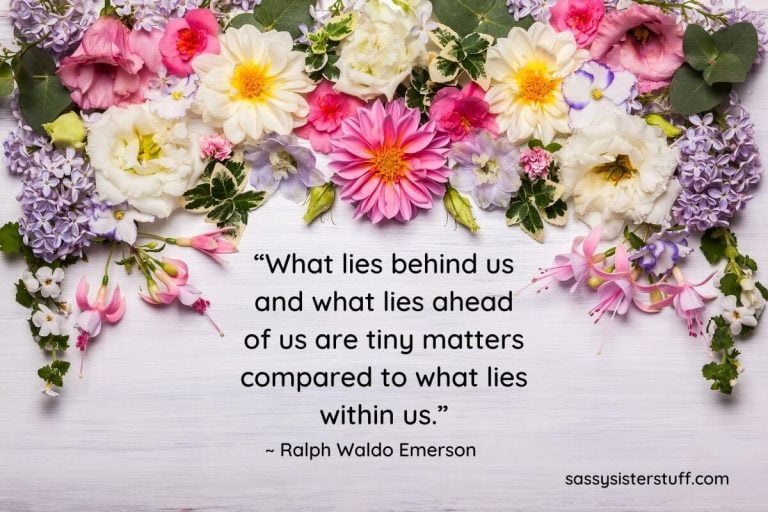15 Things You’re Doing That Are Ruining Intimacy in Your Marriage
Intimacy is a vital part of a strong marriage, but sometimes everyday habits can quietly undermine it. You might not realize certain behaviors are creating distance between you and your partner.
Understanding what actions harm your connection can help you nurture a closer, healthier relationship.
Ignoring your partner’s feelings consistently

When you dismiss your partner’s emotions often, it creates distance. They may start feeling unheard and unimportant.
Consistently overlooking their feelings can lead to frustration on both sides. It’s important to acknowledge what they share, even if you disagree.
Showing empathy shows you care. Listening actively helps build trust and keeps your connection strong.
Constantly checking your phone during conversations

When you check your phone while talking, it can make your partner feel ignored. It sends a message that something else is more important than them.
This habit interrupts the flow of meaningful conversation. Your partner may stop sharing when they feel unheard.
Putting your phone away shows respect and helps keep your connection strong. Being fully present makes your partner feel valued and understood.
Not making time for date nights

You might think daily life keeps you too busy for date nights, but skipping them can create distance between you and your spouse.
Regularly setting aside time just for the two of you helps strengthen your connection.
Even simple outings or quiet evenings without distractions can make a big difference in keeping your bond strong.
Scheduling date nights shows your partner they are a priority in your life.
Criticizing instead of appreciating

When you focus on your partner’s mistakes, it creates distance between you. Constant criticism can make them feel unvalued and less willing to open up.
Try to notice the little things they do well and express gratitude. Appreciation builds connection and encourages positive behavior.
Shifting from blame to thanks helps your relationship feel safer and more loving. It shows you see and respect your partner’s efforts.
Avoiding difficult conversations

You might think avoiding tough talks keeps peace, but it often builds distance instead. When you skip these conversations, unresolved feelings can pile up quietly.
Sharing your thoughts honestly helps your partner understand you better. It can feel uncomfortable at first, but it’s a step toward closeness.
Try to approach difficult topics calmly and with kindness. This shows you care about solving issues together, not just avoiding conflict.
Bringing up past mistakes repeatedly

When you keep mentioning old mistakes, it prevents healing. Your partner may feel judged instead of supported.
It can create a cycle of resentment that is hard to break. Focus on addressing current issues without dragging up the past.
Offering forgiveness means letting go, not keeping score. This helps build trust and closeness in your relationship.
Neglecting physical affection like hugs or kisses

When you stop sharing simple touches like hugs or kisses, it can create distance between you and your partner. These small acts show care and help maintain a close connection.
Physical affection releases oxytocin, which encourages bonding and trust. Without it, you may both feel emotionally detached, even if you communicate often.
Try to make a habit of gentle physical contact. It doesn’t have to be long or intense—just consistent enough to remind your partner they’re loved.
Assuming your partner knows what you want without saying it

You can’t expect your partner to read your mind. When you stay silent about your needs, they might miss the signals.
Clear communication helps avoid misunderstandings. Saying what you want makes it easier for them to respond in a way that feels right.
Try to share your feelings and desires openly. It builds trust and creates a stronger connection between you both.
Keeping secrets or hiding important information

When you keep secrets, you create distance between yourself and your partner. Hiding important details can lead to mistrust, which damages your connection.
Being open builds a stronger foundation. Sharing what matters helps you both understand each other better.
Even small things count. When you’re honest, it encourages your partner to do the same, making your relationship more secure.
Interrupting your partner when they speak

When you interrupt your partner, it can make them feel unheard. It sends a message that what you want to say is more important.
This breaks the flow of conversation and can cause frustration. Listening fully shows respect and care.
Try to wait until they finish before sharing your thoughts. It builds trust and keeps your connection strong.
Using sarcasm or hostile jokes

When you use sarcasm in your marriage, it can create distance between you and your partner. Even if meant as a joke, it often feels like an attack.
Hostile jokes make your spouse feel undervalued or hurt. This can build resentment over time.
Try to choose words that uplift and connect rather than put down. This helps keep your intimacy strong.
Failing to apologize when wrong

When you don’t apologize, it can make your partner feel unheard or unimportant. A simple apology shows that you recognize your mistakes and respect their feelings.
Holding onto pride often blocks the chance to repair hurt. Saying sorry doesn’t mean you’re weak; it means you care about your relationship.
If you avoid apologizing, small issues can grow into bigger problems over time. Taking responsibility helps build trust and closeness between you both.
Comparing your partner to others

When you compare your partner to someone else, it can make them feel unappreciated. You might unintentionally create distance by highlighting what others have that your partner doesn’t.
Instead, focus on your partner’s unique qualities. Celebrating what makes them special strengthens your connection and builds trust.
Remember, no one is perfect. Accepting your partner as they are encourages a healthier and more loving relationship.
Prioritizing work over quality time together

You might think that working hard benefits your family, but too much work can push your partner aside. When you consistently put work first, your time together shrinks. This lack of shared moments can slowly reduce emotional connection.
Quality time doesn’t have to be hours long. Even short, focused moments make a difference. Try to set boundaries for work, so you remain present when you’re with your spouse.
Letting resentment build without addressing it

You might think avoiding conflict keeps things peaceful, but letting resentment grow quietly harms your connection. When you don’t talk about what bothers you, those feelings stack up.
Ignoring issues can create distance and misunderstandings. It’s important to share your feelings calmly before they turn into bigger problems.
Opening up encourages trust and keeps your bond strong. Even small talks about resentment can prevent long-term damage.







